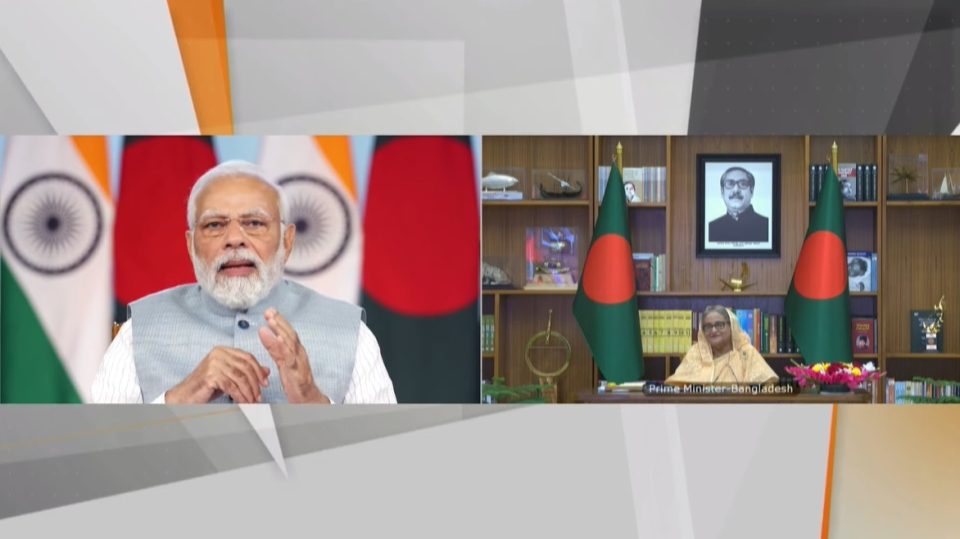
Modi, Hasina inaugurate ₹377 crore diesel pipeline to Bangladesh

Prime Minister Narendra Modi and his Bangladesh counterpart Sheikh Hasina on Saturday (March 18) jointly inaugurated a pipeline worth Rs 377 crore that will transport diesel from India to northern Bangladesh, thereby reducing costs and minimising carbon emissions.
The pipeline will start a new chapter in India-Bangladesh relations, Modi said at the inauguration.
India-Bangladesh Friendship Pipeline will enhance cooperation in energy security between our countries. https://t.co/rj6RA0jq3W
— Narendra Modi (@narendramodi) March 18, 2023
A new chapter has begun in the relationship between India and Bangladesh. In September 2018, we laid the foundation of the India-Bangladesh Friendship Pipeline. Despite Covid, the work on this project went on, Modi said.
Currently, diesel is supplied to Bangladesh through a 512-km rail route. The 131.5-km pipeline will supply up to 1 million tonnes per annum of diesel from Numaligarh in Assam to Bangladesh.
This would not just help save on transportation costs but also reduce the carbon footprint of moving the fuel, Modi said, via videoconferencing along with Hasina.
Also Read: Six Bangladeshis, who entered India illegally, nabbed from Kolkata-bound train
The construction of the pipeline project started in 2018. It is the first cross-border energy pipeline between the two neighbours. Of the total cost of Rs 377 crore of the project, the Rs 285 crore cost of Bangladesh section of the pipeline has been borne by the government of India under grant assistance.
The IBFPL will be transporting 1 million tonnes per annum (MMTPA) of diesel to seven districts in Northern Bangladesh.
The pipeline will run from the Siliguri-based marketing terminal of the Numaligarh Refinery Limited (NRL) to the Parbatipur depot of Bangladesh Petroleum Corporation (BPC). The fuel transport deal between the two countries will be in force for 15 years with an option for further extension during subsequent phases on the agreement of both countries.

